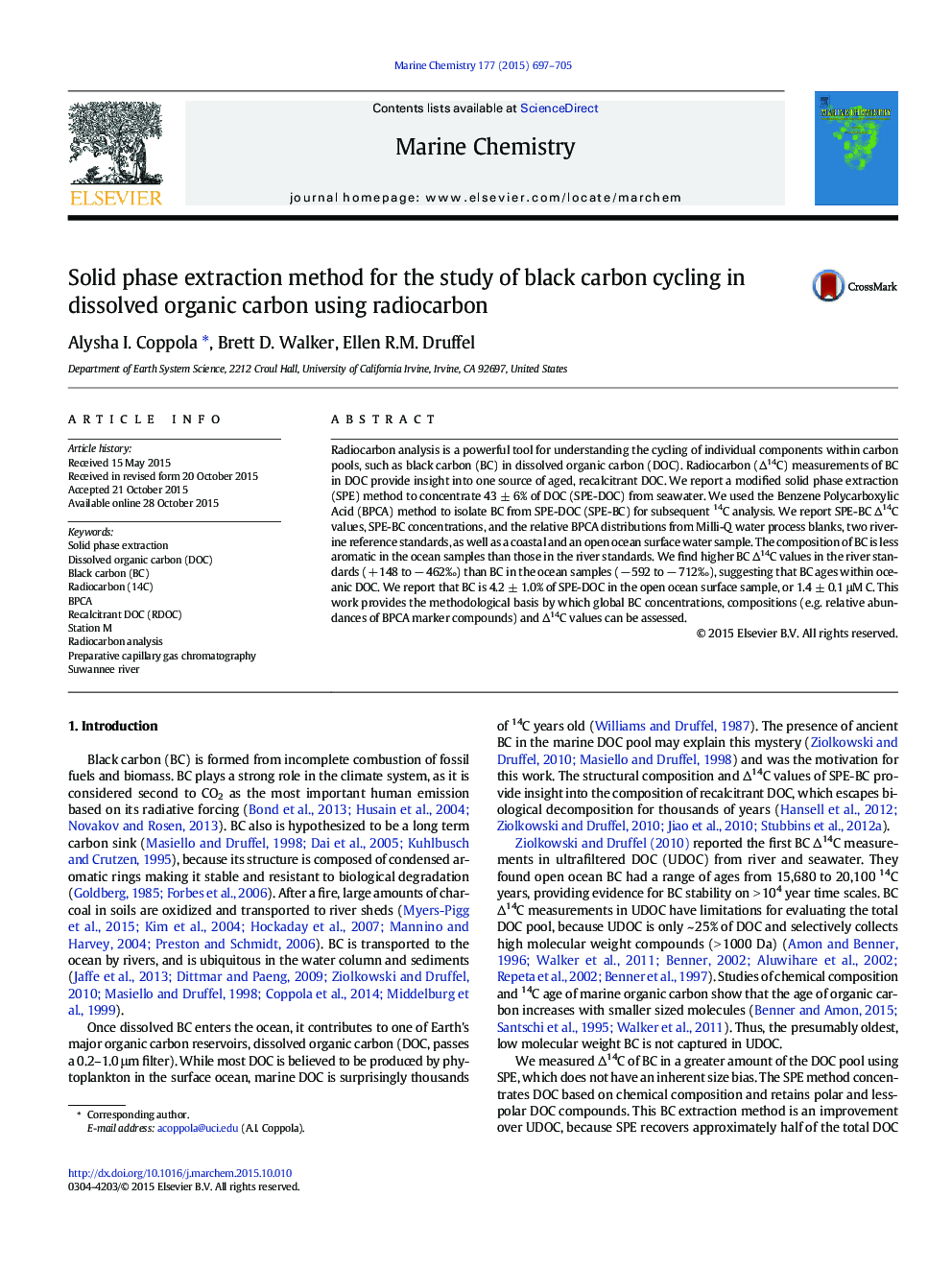| Article ID | Journal | Published Year | Pages | File Type |
|---|---|---|---|---|
| 10565747 | Marine Chemistry | 2015 | 9 Pages |
Abstract
Radiocarbon analysis is a powerful tool for understanding the cycling of individual components within carbon pools, such as black carbon (BC) in dissolved organic carbon (DOC). Radiocarbon (Î14C) measurements of BC in DOC provide insight into one source of aged, recalcitrant DOC. We report a modified solid phase extraction (SPE) method to concentrate 43 ± 6% of DOC (SPE-DOC) from seawater. We used the Benzene Polycarboxylic Acid (BPCA) method to isolate BC from SPE-DOC (SPE-BC) for subsequent 14C analysis. We report SPE-BC Î14C values, SPE-BC concentrations, and the relative BPCA distributions from Milli-Q water process blanks, two riverine reference standards, as well as a coastal and an open ocean surface water sample. The composition of BC is less aromatic in the ocean samples than those in the river standards. We find higher BC Î14C values in the river standards (+ 148 to â 462â°) than BC in the ocean samples (â 592 to â 712â°), suggesting that BC ages within oceanic DOC. We report that BC is 4.2 ± 1.0% of SPE-DOC in the open ocean surface sample, or 1.4 ± 0.1 μM C. This work provides the methodological basis by which global BC concentrations, compositions (e.g. relative abundances of BPCA marker compounds) and â14C values can be assessed.
Keywords
Related Topics
Physical Sciences and Engineering
Chemistry
Chemistry (General)
Authors
Alysha I. Coppola, Brett D. Walker, Ellen R.M. Druffel,
